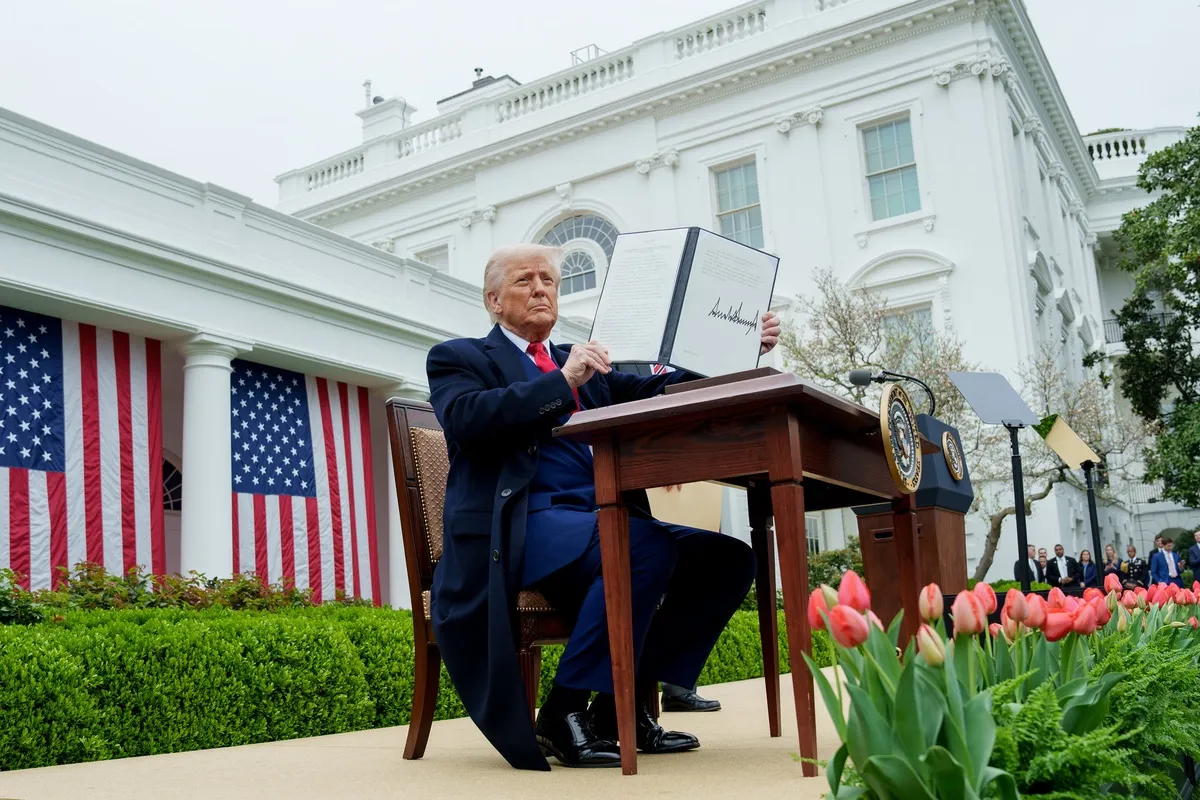Q&A: Why Vrbo’s New Brand Campaign Is Spotlighting Trust, Transparency, and Consistency

Skift Take
This sponsored content was created in collaboration with a Skift partner.
According to Skift Research, the short-term rental market is expected to normalize in 2024, following a year when U.S. demand declined due to economic uncertainty and Americans opted for overseas trips and cruises. AirDNA’s 2024 outlook predicts a rebound in demand, thanks to expected lower inflation rates and a pickup in domestic travel.
Vrbo, part of Expedia Group, aims to capitalize on this increased demand with a new brand campaign highlighting the benefits of staying in a Vrbo and what sets it apart. For one thing, Vrbo primarily focuses on private vacation rentals, making it a preferred choice for families or groups seeking more space for togetherness. The campaign played up this focus on the traditional vacation rental market in two commercial spots that ran during the NFL divisional championship games.
As the campaign unfolds, additional messaging emphasizes price transparency, consistent experiences, and the One Key travel rewards program, Expedia Group’s unique program that allows travelers to earn and burn rewards across Expedia, Hotels.com, and eligible Vrbo properties.
SkiftX spoke with Tim Rosolio, vice president of vacation rental partner success at Expedia Group, about the latest vacation rental consumer trends and insights, the key elements of the Vrbo brand campaign, and the unique value proposition of One Key.
SkiftX: What trends do you see shaping the short-term rental industry?

Success at Expedia Group
Tim Rosolio: During the pandemic, there was a surge in demand for vacation rentals as people sought safe and private accommodations. There was also an increase in supply as more people purchased second homes. While the initial wave of demand may have slowed, the industry remains healthy, as many travelers who tried vacation rentals during the pandemic have enjoyed the experience and are returning.
With the influx of supply and normalized demand, property owners must now innovate and adapt to attract bookings, especially those not directly by prime locations like beaches and ski resorts — this could involve more flexible cancellation policies, adjusting minimum stay requirements, offering unique amenities, and reevaluating fees to make their offerings more attractive in a crowded marketplace.
SkiftX: What prompted the creation of this campaign?
Rosolio: Our campaign highlights how our brand stands out from competitors by focusing on the traditional vacation rental market. Unlike the evolving short-term rental space, which now includes shared spaces and unique accommodations — think homes shaped like spaceships — our approach emphasizes the classic experience of renting beach houses, ski lodges, or urban dwellings for a private getaway. While competitors may seek to redefine the category, we're committed to the original concept of vacation rentals where guests enjoy privacy without an onsite host yet have support available.
We aim to make the entire process seamless and transparent, from browsing to staying. This means clear pricing, detailed descriptions of what guests can expect from their rental, and a goal of consistency. We believe in the uniqueness of each property and provide a reliable experience where bookings are secure and the reality matches expectations, which reassures guests they can enjoy their vacation without surprises or disruptions.
SkiftX: Can you walk us through the campaign's key objectives, target audience, and multichannel strategy?
Rosolio: Our primary audience is families and groups vacationing together who prefer traditional vacation rentals on beaches, near ski mountains, or at the lake. Our marketing campaign significantly leverages TV, featuring advertisements during major events such as NFL games and the Grammys.
We've adopted an assertive approach in TV advertising and plan to expand our efforts through out-of-home advertising to highlight our unique offerings. This multi-faceted strategy also encompasses social media, public relations, and digital assets, aiming to engage our target audience comprehensively.
Most of our promotional efforts are concentrated for spring, aligning with the peak booking period for summer stays. We’re still discussing our strategy for the fall, but in past years, we've often tied our marketing initiatives to college football campaigns.
SkiftX: How does this campaign differentiate Vrbo and reset traveler expectations for the vacation rental industry?
Rosolio: A vital differentiator we’re touting in the campaign is our One Key travel rewards program, the most comprehensive rewards program we’ve ever created. Historically, Hotels.com and Expedia had distinct rewards programs — however, Vrbo did not. Over the past few years, we’ve focused on integrating the back-end technologies across these core brands so we could create a unified travel rewards program. One Key members earn 2 percent in our OneKeyCash rewards currency on most vacation rentals. Since launching in July 2023, One Key now has over 100 million members1.
SkiftX: What are the strategies you're implementing to reduce host cancellations on guests? Specifically, are you taking measures to remove or penalize hosts with low acceptance and honor rates?
Rosolio: Vacation rental travelers, like hotel guests, expect their selected booking to be quickly accepted and not canceled. To ensure this reliability, we've adopted a three-pronged strategy. First, we offer a Premier Host badge to partners who consistently meet our marketplace standards. Second, we've introduced a cancellation fee for hosts, which varies by the specifics of the booking and its proximity to the stay date, to deter cancellations. Finally, the most stringent measure is removing hosts from the platform if they frequently decline or cancel bookings. This approach prioritizes quality over quantity in our listings, focusing on properties committed to providing an exceptional experience, and reflects our commitment to maintaining a high standard of service and reliability for our travelers.
SkiftX: The campaign is global, launching in the U.S., Canada, UK, France, Germany, Australia, and New Zealand. Why were these markets chosen?
Rosolio: We are implementing our campaign in regions where our heritage brands are well-established, as Vrbo has grown by acquiring strong brands that share its core values. We have Abritel in France, FeWo-direkt in Germany, Bookabach in New Zealand, and Stayz in Australia, each serving as the go-to family and group travel platform. This common foundation allows us to apply similar creative strategies and assets across these markets. While maintaining a consistent global message, we also make thoughtful local adjustments. For instance, in the UK and Australia, we adapt our terminology to "holiday home" instead of "vacation rental" to better resonate with local audiences. These nuances in localization, however, align with the universal spirit of our marketing efforts.
SkiftX: Vrbo’s new commercial spots clearly take aim at the quality of properties one might get with Airbnb. Are you trying to narrow the gap and compete head-on with Airbnb?
Rosolio: While we never explicitly name competitors in our advertisements, it's fairly obvious to discern who we might be referencing. We aim to excel in our niche: facilitating family and group travel through ideal vacation rentals, especially in traditional settings like ski and beach locations. We also see the potential for expansion into urban vacation rentals with a similarly high bar of quality. Our objective is to outperform other online travel agencies (OTAs) in these areas — and we’re confident we possess the necessary resources to achieve this goal and increase our market share.
For more information about Expedia Group’s One Key rewards program, click here.
This content was created collaboratively by Expedia Group and Skift’s branded content studio, SkiftX.




